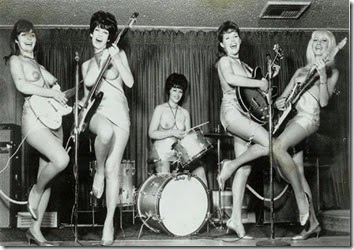1.22.15 BROAD BAND
This article originally appeared in the 1.22.15 issue of Metroland.
All kinds of fun on the broadband front. Finally, we’re seeing some leadership that
understands the need for real and affordable high-speed internet, as a basic
human right, as a public safety necessity, as an economic driver, and as a matter
of national security. The news for now
is mostly good, unless the Republicans, who are so whoring for the big internet
providers, screw it up.
First is
Governor Cuomo’s re-affirmance of something he’s been bouncing around for a few
months—a mega-push to make high-speed internet available everywhere in the
state. What's been proposed is up to half a billion dollars of matching funds
for construction of a network that will provide every part of the state with at
least 25 mbps internet by 2019.
Let’s put
this in perspective. Prior to this, the New York has kicked in $70 million for
internet development. Now we’re talking
a total investment of a billion, if the private money materializes, which it
should. By contrast, over here in Massachusetts
there’s an odd little organization called Wired West (which solicits Paypal
donations) that’s trying to get towns to underwrite 25 year multi-million
dollar bonds to pay for internet infrastructure, which they claim will somehow pay
for itself. Or something. We’re not holding our breath, and meantime, a
whole bunch of us don’t have meaningful service. It just sucks.
And the
quality of service Cuomo’s talking about is pretty dazzling. He wants 100 mbps as the standard, but will
allow 25 mbps if a showing is made that it’s too difficult to provide the
higher speed. This is most likely a LOT
faster internet than you are “enjoying” right now. My lovely overpriced satellite internet
promises “blazing fast” speeds of “up to” 15 mbps, but customer service informs me that anything north of 3 mbps is considered “acceptable”. 100mbps is faster than your cable internet, a
lot faster than your DSL, and absurdly faster than your wireless.
Of course
the devil will be in the details, and the roll-out, the technology, and most
importantly, the affordability of all this are yet to be seen. But it’s bold, and as Cuomo is quick to point
out, it’s the biggest state internet initiative in history.
Over on the
Fed side of things, Obama said this the other night in his awesomely excellent
State of the Union address: “I intend to protect a free and open internet,
extend its reach to every classroom, and every community, and help folks build
the fastest networks, so that the next generation of digital innovators and
entrepreneurs have the platform to keep reshaping our world.”
This
dovetails nicely with signals that the FCC will rule for true net neutrality in
late February, and with studies from the FCC and the Commerce department that
show the utterly dismal current state of real broadband in this country. The studies tell us what we already know—that
there is virtually no competition anywhere in the country for true
broadband. The FCC has gone so far as to
propose redefining broadband as 25 mbps and up, which would demolish the
internet company and telco arguments that since you have a choice between cable
and wireless, why you’ve got competition!
You don’t. You know you
don’t. That’s not a choice.
And
finally, both Obama and the FCC have taken aim at state laws that forbid
municipalities from forming their own broadband companies. Yes, these laws exist in over 20 states,
written by the big internet service companies and passed with waves of cash
thrown at legislators. There’s
apparently some talking point about how these laws protect taxpayers, but of
course they don’t. They simply prop up
the bloated, pampered, corrupt monopolies that are helmed by the likes of
Comcast and Time Warner. In states where
these laws don’t exist, cities like Chattanooga, Seattle, and LaFayette, LA
have installed city-owned networks, structured much like municipal electric
systems, that deliver affordable and ridiculously fast (up to 1 gbps !!!)
internet service to an adoring public.
This is the kind of thing that attracts businesses to your town. Big time.
Of course,
since Obama’s for it, the Republicans are against it. And because it’s a no-brainer, their
arguments make no sense at all.
Net-neutrality is “government regulation” which, of course, is always
bad. Corporate butt-boy Ted Cruz has
been making increasingly imbecilic remarks about net neutrality, like a
conceptual art project to show how stupid his constituents are. Obama’s attacks
on the protectionist state laws are an affront to “states’ rights,” which of
course was what justified slavery in the 1800’s. The fact that the Republicans are simply
trying to prop up their corporate benefactors is lost on no one who is paying
attention.
With the
current climate in Washington, maybe nothing will get done. As I write this, congressional Republicans
are trying to dismantle the FCC on behalf of their corporate overlords. It’ll be a fight to the finish.
Paul Rapp, like
Gregory Peck in “Duel in the Sun”, is a lecherous, amoral cowboy... wait! wrong movie!
Paul Rapp, like Gregory Peck in “To Kill A Mockingbird”, is a dapper and
civic-minded attorney devoted to social justice and good bourbon.



